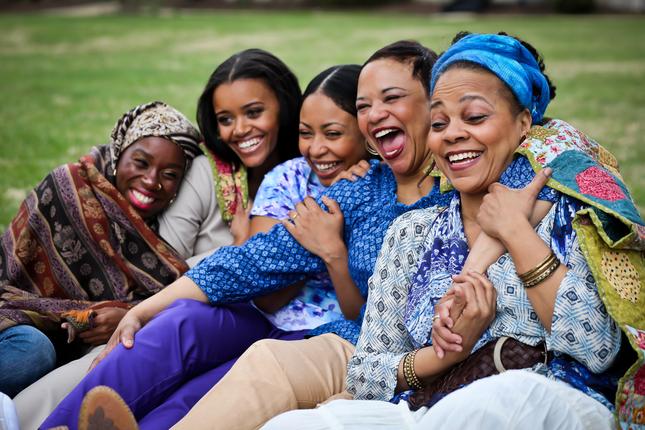Katori Hall’s ‘Blood Quilt’ at Arena
By • April 23, 2015 0 2115

By almost any measure, the world premiere of “The Blood Quilt,” the new play by Katori Hall at Arena Stage’s Mead Center for American Theater, is a big deal, resonating strongly in Washington.
For Hall, an inaugural resident playwright of Arena’s American Voices New Play Institute, the production marks a triumphant return here, the promise of a big career fully confirmed. Memphis-born Hall, a performer as well as a writer, wrote “The Mountaintop,” which won the 2010 Olivier Award for Best New Play and ran on Broadway starring Angela Bassett and Samuel L. Jackson. Three of her plays are currently receiving world premieres around the country.
“The Blood Quilt,” which runs April 24 to June 7, reunites Hall not only with Arena Stage but with director and Howard University alumna Kamilah Forbes, artistic director of Hip-Hop Theatre Junction, who collaborated with Hall on “The Mountaintop.”
“The Blood Quilt” is a unique theatrical event in many ways. It features an all-female cast (along with its female director and playwright).
The play is an African American-focused story, a fierce family comedy-drama in which, in the wake of the death of their mother and family matriarch, four sisters converge on their childhood home on an island off the Georgia coast to make a family quilt in her honor. Drama ensues with the reading of a will as the four women, and one of their teenaged daughters, face their own troubled history.
Yet, after talking to Caroline Clay and Nikiya Mathis, the actresses who play two of the sisters – Gio, the bigger-than-life second-eldest sister, and Cassan, the third-eldest – you get the sense that this is a play that goes far beyond race, reaching out to the universal without ever leaving the particular.
This is a play about family, first and foremost, and the women of that family, in particular; men – fathers, elders, boyfriends and husbands – are not in evidence except as figures in stories told around the circle of patching and sewing.
In person, Clay and Mathis are very different, in much the same ways their characters are. Clay has found a connection to the earthy and boisterous Gio – “There’s no filter, there, she’s just one of those people when it comes to saying without thinking.” – and Mathis is more reserved, like the sister she plays.
Clay is a recognizable part of the tapestry of D.C. theater. She’s a native, she won a Helen Hayes Award for outstanding supporting actress in a non-resident play for “Doubt,” she’s a graduate of and teaches at the Duke Ellington School of the Arts. “This play has been talked about a lot and it’s been on my radar for a while, and I auditioned like everyone else,” she said.
Mathis is a New York actress who workshopped a Hall play called “Pussy Valley.” “Yeah, right,” she said. “I played a stripper. She writes so directly, so powerfully, she has a major voice.”
“There’s a lot of personal ways to relate to my character. I’ve experienced some of the things she did, I’ve made my mistakes, so you understand her,” Mathis said. “You can see her. She was the one, among four sisters, who her mother never really saw. And that’s an issue on a larger scale, this being invisible.”
There is also Clementine, the eldest, who has called this gathering of the sisters, played by Tonye Patano, and the teenager, Zambia, played by Afi Bijou.
After a while, as the conversation spread out like, well, a quilt – ranging from roles for African American actors to Roscoe Lee Browne, who died in 2007, from television’s “Empire” and “Outlander” to the American South – you could be excused if you thought you could hear the women of “The Blood Quilt” talking, remembering, making the quilt of their memories and lives.

